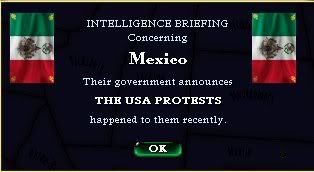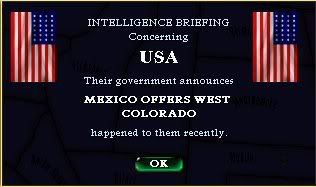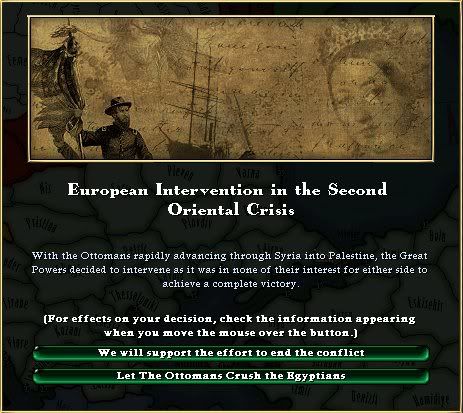To All: I am away until friday in Istanbul, but there will be an update on saturday morning as soon as I have got back and played some more game. Until then;
likk9922: Blame it on the French...
 phargle:
phargle: But the American army stands at 4 regular divisions in total, hardly enough to subdue Mexico. And if they were blockading Mexico, there would be a distict risk of Prussian transports sneaking through holes in the USN. The 1848 war should still trigger just fine.
comagoosie: Are you suggesting a Franco-Austrian alliance to combat Prussia? It is unorthodox, but a scary possibilty. I will keep my diplomatic nose ready for it.
asd21593: Patience, carefully applied force will do it: ie. 500,000 Prussians.
Eöl: Make that 1,000,000 Prussians. 500,000 for each front.
Doge Robert: Well I haven't really de-stabilised the USA. So they lost a president, no big deal. They gained Colorado and i gave them +5 prestige (ok so it isn't that much). I don't really know what my Ally will do. He might build a ton of troops or might build none. Who knows?
Raden Shaka: My policy has not been to set a date for when I want to be unified. I will take what chances come, and see what is given to me. If I have to wait until 1870, then I wait until 1870.
M79: I will do my best to prevent it. Though part of the 'Hohenzollern of the Mexican Throne' event for Mexico landed 50,000 Prussians in Mexico City, so god knows what will come of it.
Ahura Mazda: No. Well I don't think so. I have never taken Mexico before 1848, so I don't know what the USA will do about it.
Enewald: Seeing as I have your blessing...

 ) and I'm curious to see what strategies work and where the pitfalls are..
) and I'm curious to see what strategies work and where the pitfalls are.. 






